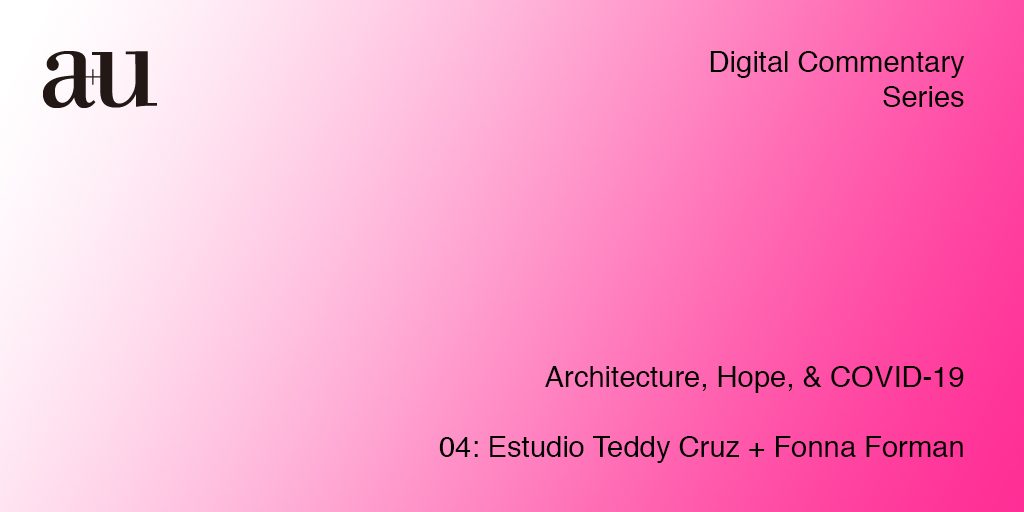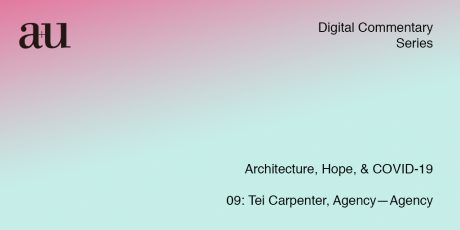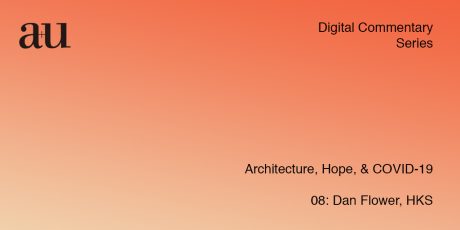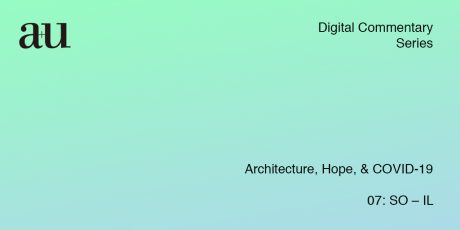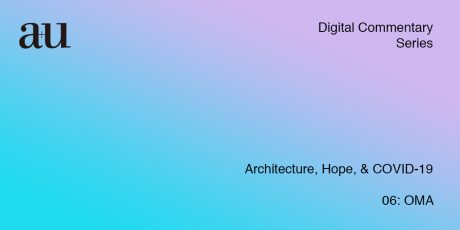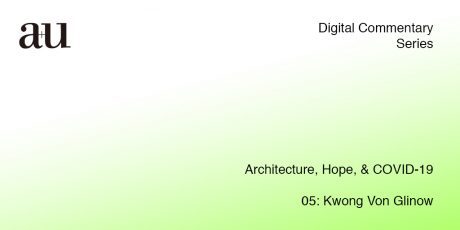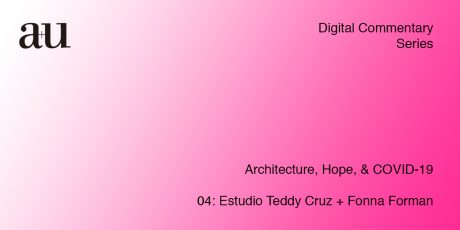Wednesday Estudio Teddy Cruz + Fonna Forman
The American Congress is divided between those who will wear masks, and those who refuse (mostly Republicans). Again we witness a collision between rugged individualism and collective commitment that has ruptured the American public. Unchecked this conflict between private and public priorities will remain the single obstacle to healing our society and rebuilding a more equitable and inclusive future as we emerge from the ravages COVID-19.
The Coronavirus crisis has become a strange antidote to the myopia of selfish protectionism, exposing the vulnerabilities of our public health system and the dangers of eroding our social safety net. This moment also reminds us of our radical interdependence, our need for truth and transparency, the guidance of experts and the effectiveness of cross-sector coordination and trust. Perhaps from all this a renewed public consciousness might be born? Can this moment instigate a paradigm shift in our public priorities once we bodily reunite? Can we envision the end of greedy capitalism? The re-emergence of a progressive welfare state? A commitment to more equitable cities?
We have always maintained that the future of cities depends less on buildings and more on reorganizing social and economic relations. A more equitable urban future requires a new political economy that redistributes resources and knowledges, and invests in public infrastructure. While the COVID-19 crisis has prompted designers to rethink the domestic and private spaces of isolation, and transitional structures to support social distancing and care, we hope that architects will continue to advance an architectural vision dedicated to social proximity, and the ideals of social justice, asylum and inclusion, public health for all, and urgent climate action.
Follow the series as it develops, here.
